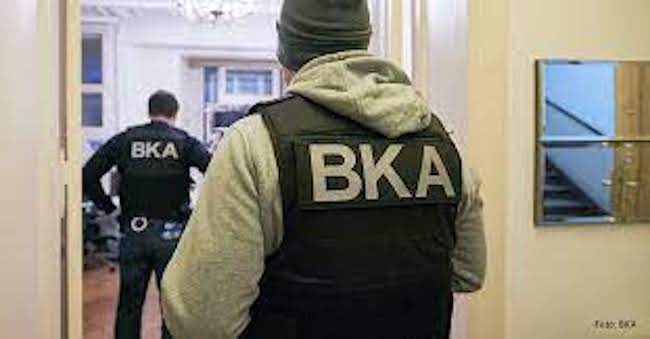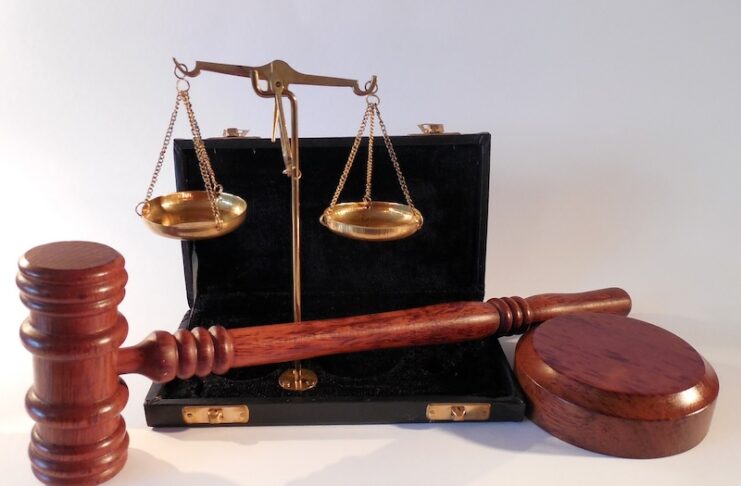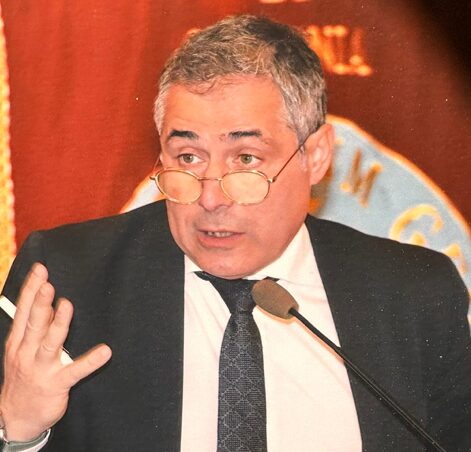Eurispes’ investigation into the mafias’ significance and presence in Europe and beyond continues. After Switzerland and Albania, the focus turns to Germany, Europe’s economic engine. Germany became worthy of interest to our mafias just after the fall of the Berlin Wall. A stage which was also confirmed during the operation “Europa” – conducted by the Guardia di Finanza and the Public Prosecutor’s Office for Locri – when ’Ndrangheta’s boss Salvatore Filippone, while addressing an affiliate and referring to Germany, says in a wiretapping: “buy, buy, buy everything you can”. Another central theme is the terrible phenomenon of human trafficking, and we discuss it with Carsten Moritz, head of the Anti-human Trafficking Unit of the German Federal Police, the Bundeskriminalamt (BKA).
In Germany, where the massacre of Duisburg took place in 2007 – which demonstrated the presence of the ’Ndrangheta on German territory – what is the current situation of mafias’ presence, how present are they in the social and economic fabric?
According to the Federal Criminal Police Office, the ’Ndrangheta is the most widespread Italian mafia-type organised crime group in Germany. This assessment is supported by examples such as individual high-profile investigations. The BKA’s Organised Crime Report 2019 shows that 19 out of 594 preliminary proceedings were directed against members of Italian organised crime. In 13 of these investigations, the focus was on criminal groups of the type of Mafia ’Ndrangheta, Cosa Nostra and Camorra.
Is it more correct to talk about organised crime or mafia in Germany? Since there is often confusion about it, what is the most accurate approach from your perspective?
“Organised crime” is an umbrella term that applies to various groups. With the term ‘mafia’ or ‘mafia method’, we refer to Article 416bis of the Italian Criminal Code and focus on the autochthonous, hence criminal groups of Italian origin, such as Cosa Nostra, the Stidda, the Camorra, the ‘Ndrangheta’ or organised crime from Apulia. Normally, however, we refer here to Italienischer organisierter Kriminalität (IOK) or ‘Italian Organised Crime (COI)’, as this terminology corresponds more closely to the German definition.
Human trafficking is one of the problems affecting the whole of Europe. Do we have adequate means to fight it, and how serious is mafias’ involvement in this traffic?
The main fields of activity of the Italian mafias are drug trafficking, money laundering and, to a lesser extent, fraud and extortion of money (what is called “protection”); mafia phenomena linked to the field of agriculture – hence agromafia – or related to the construction sector and the building industry are occasional cases, which can also be observed in Germany. According to the Federal Report on “Human Trafficking and Exploitation” 2019, the organisational level of the structure of groups of actors active in human trafficking in Germany is varied. They range from single, individual figures to internationally active, organised crime groups. Investigations in this area show that the criminal areas of human trafficking and exploitation are very lucrative fields of activity for criminal groups. Most of the prosecutions in this area have been conducted based on trafficking in human beings for sexual exploitation. The BKA does not currently have any information on Italian Mafia groups’ involvement in human trafficking.
You are head of the division dealing with the fight against human trafficking. Which operation has affected you the most among the many you had to face and why?
Normally, any investigation into suspected human trafficking in all its forms is based on a serious violation of human rights. It attacks people in vulnerable situations and requires a sustained and continuous struggle. We must emphasise that investigations always involve people’s lives – which must underline that – and this makes it necessary to fight this phenomenon with all available means. At the same time, each investigation always presents new challenges to law enforcement Authorities. Two important international investigations in the area of “human trafficking” can be mentioned as examples: in 2017/2018, the BKA supported and coordinated a joint investigation with the UK National Crime Agency and the Criminal Investigation Directorate in Trier (German city on the Luxembourg border) against a Nigerian trafficker, a “madame”, residing in London.
After the successful outcome of the investigation, the “madame” was finally sentenced in the UK to 18 years imprisonment on five counts of human trafficking for sexual exploitation. The primary basis of the trial was the extensive testimony of Nigerian victims in Germany. The court focused on the seriousness of the crimes due to the physical and psychological violence against the victims, and in particular, emphasising their good faith and vulnerable position. Another investigation was internationally coordinated and supported by the BKA from 2017 to 2019. The proceedings, conducted on behalf of the Bochum public prosecutor’s office on suspicion of human trafficking for sexual exploitation, were directed against an internationally active Nigerian criminal group with links to the Black Axe fraternity. During the investigation, it was possible to identify 23 victims recruited by the network of perpetrators in Nigeria after taking a voodoo oath and smuggled by sea through Libya to Italy and from there to Germany. The main suspect was arrested shortly before the pre-trial measures were also applied in Italy because the Italian investigative authorities were also conducting a parallel undercover investigation against the same suspect. He was sentenced in Germany to eight years and three months imprisonment. In this case, particular emphasis was placed on the unscrupulous treatment of the victims, including illegal abortions.
Is there awareness in civil society in Germany about the issues of organised crime, human trafficking? Is it a phenomenon that only concerns the police, and what should be done to raise civil awareness?
The issue of human trafficking is in the spotlight and taken into account by the public opinion and the media in Germany. Successfully fighting human trafficking in all its facets requires close collaboration between all cooperation partners concerned by the problem. In the so-called multi-disciplinary approach, we should mention, in addition to the police, specialised counselling centres and, for instance, in the area of labour exploitation, customs/financial control of illegal employment. Education and training measures at all levels, as well as prevention campaigns, are the necessary basis for raising awareness about a criminal act that is actually a crime against humanity.






















